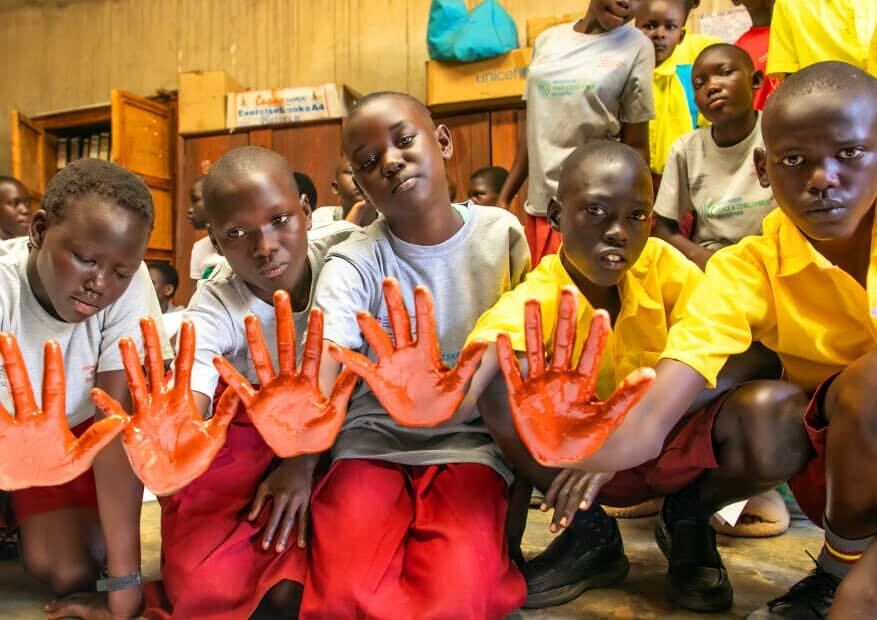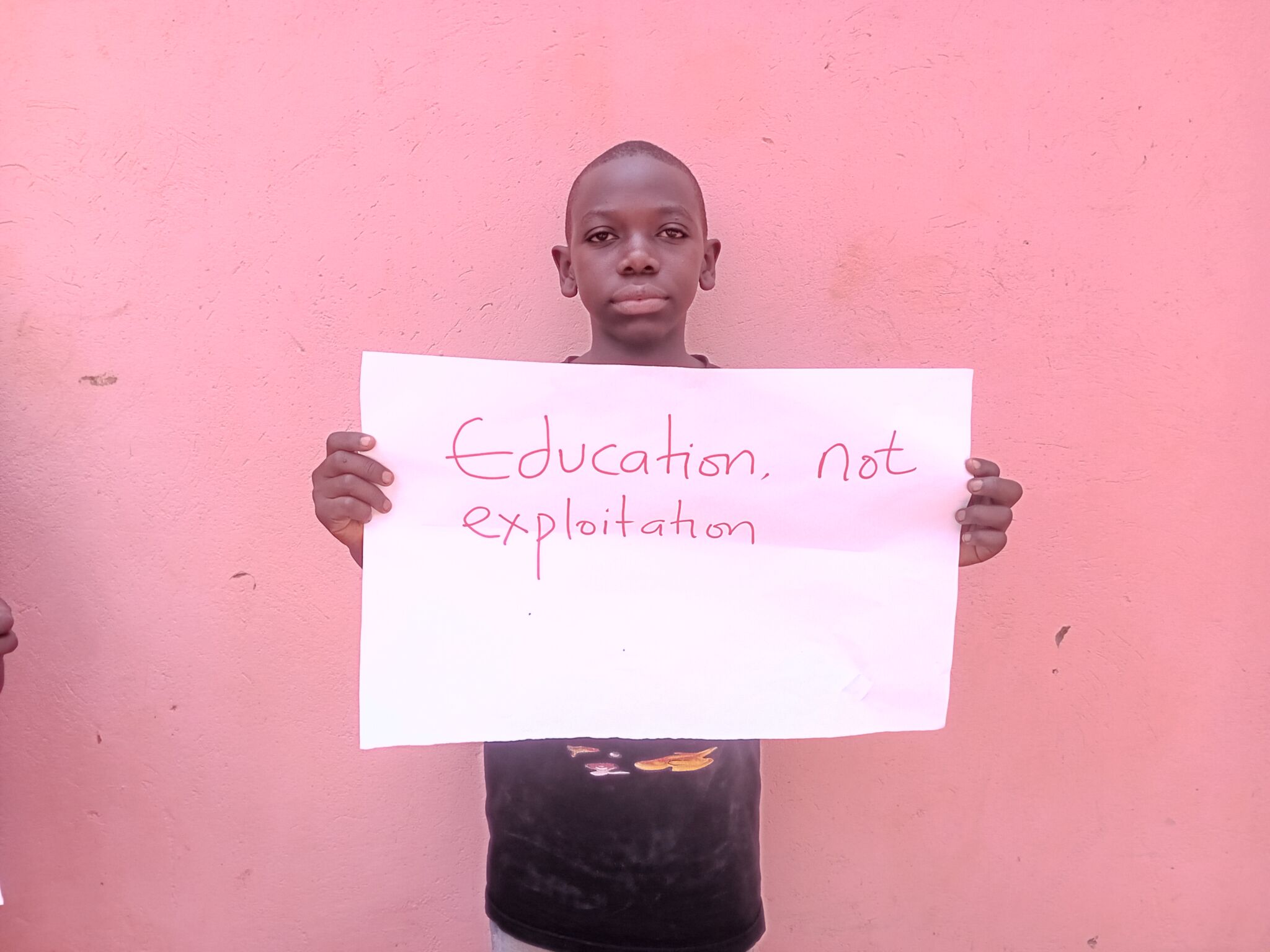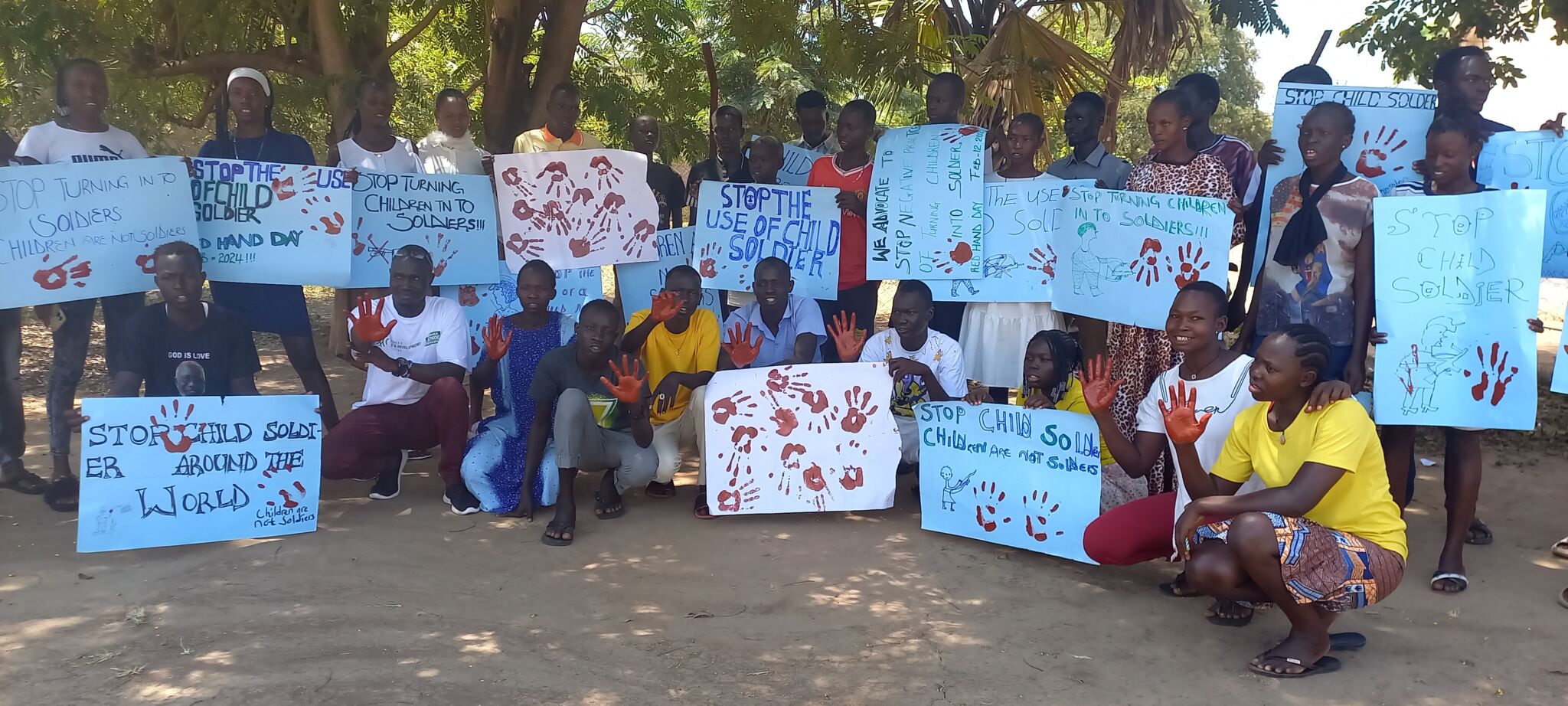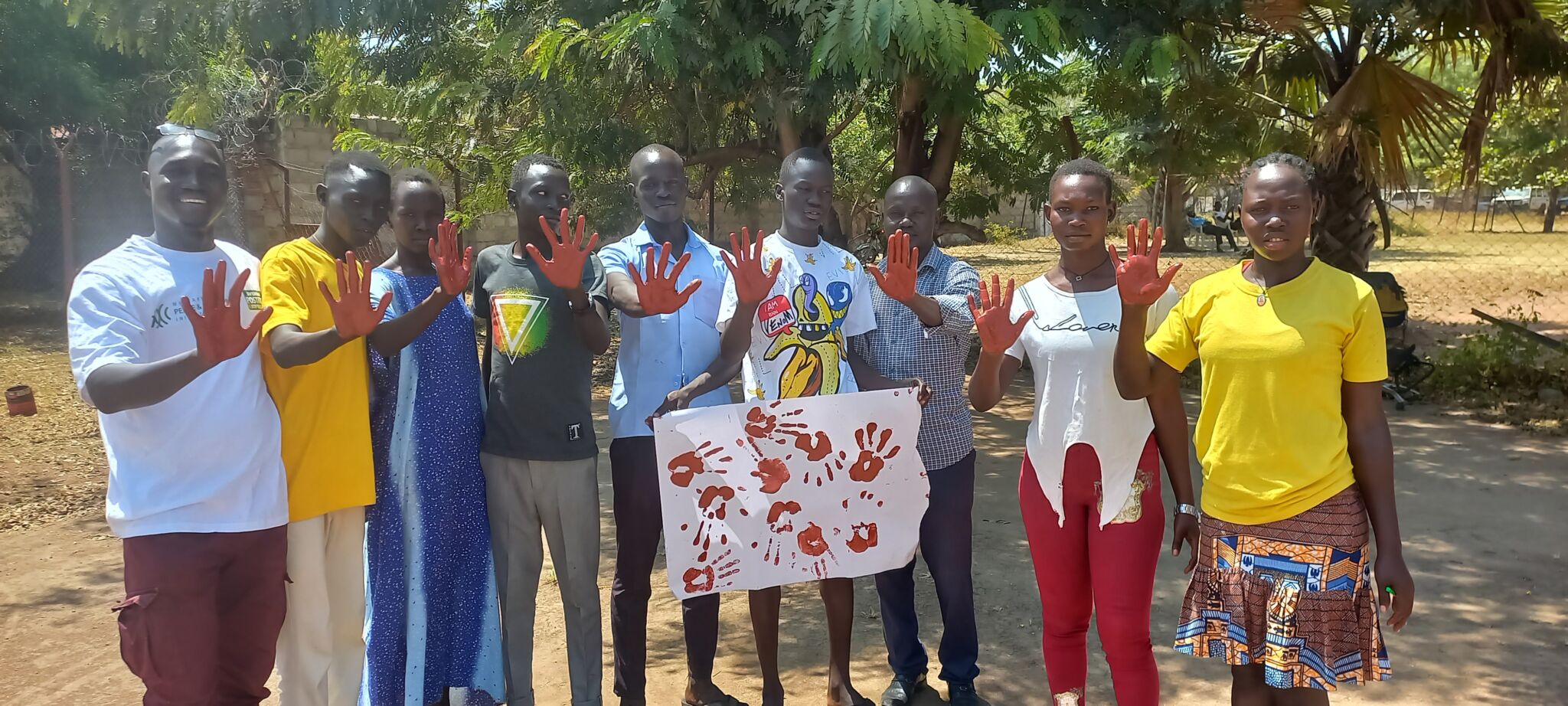
February 19, 2024 – On February 12, WPDI marked International Day Against the Use of Child Soldiers, also known as Red Hand Day, a day dedicated to advocacy against the use of children as soldiers and for their sustainable reintegration in society. Addressing the profound human toll resulting from the enlistment of child soldiers deeply resonates with the core values of WPDI. Back in 2006, when filming The Last King of Scotland, our CEO and founder, Forest Whitaker, came face to face with the unspeakable realities facing former child soldiers, whose lives had been destroyed, souls twisted and futures turned bleak by forced enrolment and violence.
This experience changed his life forever, urging him to take action and dedicate himself to peacebuilding in places struggling with conflict, armed violence, poverty, and marginalization. Our work in Uganda and, especially, South Sudan, is deeply connected to the fate of thousands of former child soldiers whose rehabilitation and reintegration is crucial to our efforts at creating lasting peace in unstable, underprivileged communities.
Under its action plan for the sustainable reintegration of children affected by conflict, the Paris Principles, UNICEF defines a child soldier as any individual under 18 years old who has been recruited or utilized by an armed force or armed group in various capacities. It does not only refer to a child who is taking or has taken a direct part in hostilities – for instance, many girls are forcibly abducted and subjected to sexual slavery or forced labor. According to UNICEF, there are currently circa 19,000 children being used by South Sudanese armed groups and armed forces, in an egregious violation of their human rights and in direct contradiction to the laws of the country.

It can never be repeated enough that children forced to participate in armed conflicts suffer a disproportionate blend of physical, mental, and social consequences. Often coerced, abducted, or enticed by false promises of a brighter future, they bear the weight of harsh conditions, witnessing and sometimes participating in atrocities unbefitting their tender age. Weighted by trauma, robbed of their education, deprived of their families, these are people whose childhood has been blatantly stolen.
Despite concerted efforts and notable progress, the recruitment of children into armed conflict persists as a formidable barrier to their pursuit of a complete life. In January 2023, World Vision’s initiative in Western Equatoria identified 12 children (5 girls, 7 boys) associated with armed forces, among the 765 children currently receiving psychosocial support.
This clearly calls for added efforts at the policy level. As per the 2020 Comprehensive Action Plan to Prevent All Grave Violations Against Children in South Sudan, signatory parties pledged to abstain from recruiting or employing child soldiers in armed forces or militias. The government mandated age assessments, often conducted through dental exams due to limited access to birth registration documents. As agreed by all stakeholders, including within the government, much remains to be done for ensuring that international standards and national laws are fully respected by all parties.

Experts highlight a prevalence of children joining locally organized armed groups rather than those with formal centralized structures. International observers documented the recruitment and use of child soldiers by armed groups in Western Equatoria, Unity, and Lake states, with boys engaged in manual labor and other tasks.
This has led to an international awareness campaign, culminating in Red Hand Day every February 12, led by leading international NGOs and supranational entities. UNICEF has called for the end of the use of Child Soldiers in South Sudan “It is with frustration and impatience in my voice I’m asking all armed entities to stop the recruitment and the use of children immediately,” said Andrea Suley, UNICEF South Sudan Representative a.i. “I’m calling upon the Government of South Sudan to allocate funding for and start implementing the Action Plan against all the Six Grave Violations against Children in Armed Conflict, which was signed last year.”
This date holds real significance, because on February 12, 2002, the Optional Protocol to the UN Convention on the Rights of the Child, safeguarding children in armed conflict (OPAC), became effective. It prohibits the involvement of individuals under 18 in hostilities (excluding recruitment by States). Over 170 governments have embraced this Optional Protocol. The child rights organization Terre des hommes, in collaboration with five other human rights organizations forming the Coalition to Stop the Use of Child Soldiers, undertook initiatives.
Globally, numerous organizations, both large and small, supported the campaign from its inception, including the Watchlist on Children and Armed Conflict, Amnesty International, World Vision, Quaker, Save the Children, Pax Christi, and UNICEF. Red Hand Day, then, is a chance to make a concerted plea to political leaders to come up with a unified response to this continued humanitarian tragedy.

As a committed advocate for peace and human rights, WPDI recognizes that the use of child soldiers remains a critical challenge in conflict zones like South Sudan, robbing children of their innocence and potential. Red Hand Day serves as a poignant reminder of the urgent need to address this issue, prompting global awareness and concerted action against the recruitment and use of child soldiers.
To this effect, our teams on the ground participated, on Red Hand Day 2024, in a number of advocacy activities showing solidarity with and commitment to the cause. In Central Equatoria State, WPDI South Sudan team engaged in informative radio talk shows, addressing the issue’s prevalence and viable solutions. Additionally, an anti-child soldier campaign took place at the Yambio Community Learning Center a week before, drawing over fifty participants, who pledged to disseminate the message back into their communities. Notable stakeholders, including the Ministry of Local Government, Law Enforcement, State Ministry of Child, Gender, and Social Welfare, and DDR, were actively involved, alongside the Yambio Multipurpose Institute. Simultaneously, school-based advocacy campaigns were organized in Central, Eastern and Western Equatoria States, featuring children painting red hands and sharing poignant testimonials like “I want to go to school,” “Stop child soldiers worldwide,” and “Children should carry books, not guns.”
For WPDI, the day underscores our mission to empower communities, foster peace, and protect the vulnerable, aligning with their dedication to creating a world where children are free from the horrors of armed conflict, ensuring a brighter and more secure future for generations to come.
In partnership with
